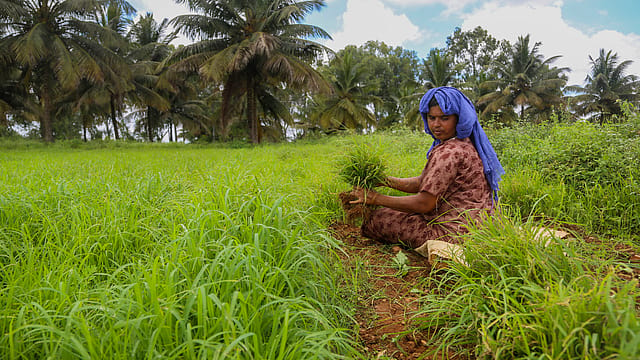Union Budget tech-friendly, allocations for agriculture decline, say stakeholders
ADVERTISEMENT

The agriculture and rural-specific measures announced in Union Budget 2023-24 have received mixed responses from the stakeholders. While one section hails the technology push and the spillover effects it can have on farmers and agriculture of the country, others consider the budgetary allocations to be either low or the same as the previous year to make a difference in the lives of the farmers and rural households.
One of the key measures announced for the agricultural sector was the development of a digital public infrastructure for agriculture as an open source, open standard and interoperable public good. Finance Minister Nirmala Sitharaman had said that this will enable inclusive, farmer-centric solutions through relevant information services for crop planning and health, improved access to farm inputs, credit, and insurance, help for crop estimation, market intelligence, and support for growth of agri-tech industry and start-ups.
Balram Singh Yadav, managing director, Godrej Agrovet Limited said that the Union Budget 2023-24 is a step forward in leveraging technology for improved agriculture in India. "Educating farmers on the new-age technology and realigning crop planning based on climatic conditions is a necessity and it is herein that digital open infrastructure will play a critical role – improving access to farm inputs as well as intelligence. With our country’s startups playing a critical role in building innovative and affordable solutions for farmers, enhanced collaboration within the eco-system will go a long way in enhancing farmers productivity and profitability," Yadav said. He also said the agriculture credit and insurance initiatives announced in the Budget would aid farmers to invest in better techniques while the duty reduction in marine products would motivate shrimp manufactures. "With India emerging as a net exporter of agriculture and allied products, this budget can be termed tech-focused-inclusive budget for Indian farmers – the one which focuses on supply and input sides to enable farmers get better price for their produce," he opined.
Sanjay Kumar, partner at Deloitte India, said that the promotion of cooperatives and creation of storage facilities may help farmers, especially ones with small land holdings, to consolidate and have the chance to realise higher prices.
However farmers' organisation All India Kisan Sabha (AIKS) said the proposals were was high on rhetoric and hollow on actual allocation for agriculture and rural development. "There has been a drastic cut on expenditure for rural employment, MGNREGA, food Security, fertiliser subsidy etc. This Budget coming at a time when uncertainties loom large due to the recession, the threats of climate change and other exigencies fails to generate confidence in the farmers. There is nothing in it to enhance incomes of the peasantry and toiling masses. The Budget Estimate for agriculture has been substantially reduced from ₹1,24,000 crores in 2022-23 to ₹1,15,531.79 crores this year. Actually, there has been a comprehensive reduction in budgetary allocations for agriculture in this budget," Vijoo Krishnan, general secretary, AIKS, said.